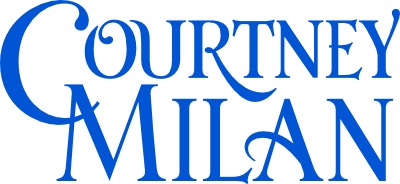I actually can’t answer this question generally, or, at this point, even for myself. Normally, I would say “talk to your tax preparer.” But the truth of the matter is that the state of Washington is still promulgating regulations to try to deal with some changes that have been made to the law, and the draft form of the regulation does not clarify whether self-publishers (and others who have business dealings with Amazon) are swept in by the new law. So point your tax preparer to this post (which contains the answer I received from the Department of Revenue in its entirety). The ruling I obtained is not binding on you, but it is binding on me.
So here’s the deal.
For background purposes: Washington state has no individual income tax, but it does tax business activity in the state. That means that Washington residents and those who have a sufficient economic nexus with Washington need to pay a certain percentage of their income to Washington every year.
My initial thought was that if I wasn’t living in Washington, I wouldn’t have to pay their business & occupations tax. Then I started reading the tax code. As of 2011, Washington state requires you to license your business in Washington, and pay business occupation taxes, if you have an “economic nexus” with Washington. The standard is outlined on their website:
If your business earns income attributable to Washington that would be taxable under an apportionable B&O classification and meets one of the following thresholds within a calendar year, you have economic nexus with Washington:   More than $50,000 of payroll in Washington   More than $50,000 of property in Washington   More than $250,000 of gross income in Washington   At least 25 percent of your total property, payroll, or income in WashingtonIf you have economic nexus, you must register your business with the Washington State Department of Revenue and report and pay Washington B&O tax.
Answer:Actually, we believe that you are making consignment sales of your books through Amazon Digital Services. Therefore, you would owe retailing B&O tax and retail sales tax on your sales to Washington consumers. However, if Amazon does not collect and remit sales tax on your behalf and if Amazon does not provide a state by state breakdown, we can allow an alternative to using the customer’s address (as is usually the case).Rather than requiring you to remit the taxes due on your book sales to all of your customers, we will allow you to remit such taxes on 2% of your sales since you don’t get the needed information from Amazon.Sharing this rulingYou may share this ruling with anyone you like. However, it is only binding on your business. We recommend other businesses request a ruling based on their specific facts.In the mean time, the Department is working on a proposed rule for royalty income (WAC 458-20-19403). You may view the proposed rules on our website.This ruling is binding. If you disagree with this ruling, you have specific appeal rights under WAC 458-20-100.

Great. I so didn’t want to know this. It never even occurred to me that B&O would apply to the authors who sell through Amazon.
Having been a Washington resident, I know that B&O is based on gross income, not net, so I’m certain Amazon has already paid the tax on this sale, so this amounts to double taxation. Not that WA state minds collecting tax twice on the same sale. It’s just that much more money in their coffers they can mismanage.
Of course it’s double taxation. The B&O tax on gross income ends up with double and triple and quadruple taxation tons of ways–just imagine a business that hires a business who hires a business who hires a business…
I think when Washington state pulls a tax move that affects people who are distributed by Amazon or are published by Amazon, the headlines will be so big that no one will miss them.
And you forget there’s someone else in that state: Microsoft. And they have an app store. You think their lobbyists will let that state get away with something that will impact that business and scare away developers?
I don’t know, Mike. If the bigwigs in the state end up with a choice between a state income tax and a B&O tax that gets people other than themselves, I’m going to make a guess which one they’d choose.
As a general rule, I think any time someone insists that a political proposition will be defeated because everyone will hate it as much as they do, I am doubtful.
Think about it: hypothetically, we’re talking about a state taxing business activity where the underlying business owners don’t vote in the state. Like you, I would rather not be taxed by Washington, but I’m having a hard time seeing why most Washington residents would give a shit about me.
As it is, it looks like the vast majority of self-publishers wouldn’t be swept in by this ruling: the only people who have to pay B&O tax on income from Amazon are Washington residents and self-publishers who make more than $12.5 million a year from Amazon US.
The latter category, I believe, at present encompasses nobody.
AN inherent issue for any internet retailer in potentially any state. When times are lean, the powers-that-be want to raid any storeroom they can. Thank you for bringing this to everyone’s attention.